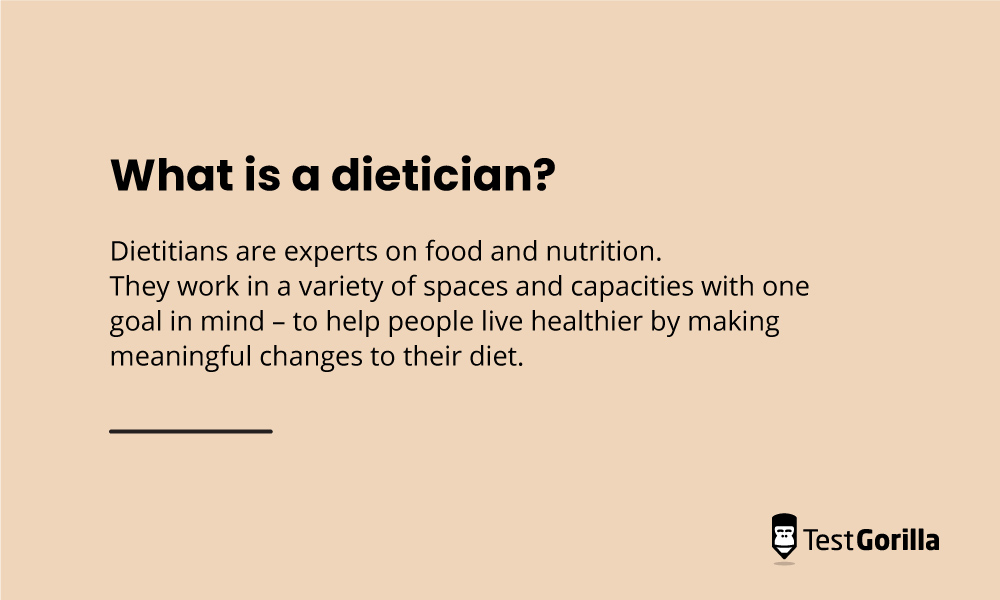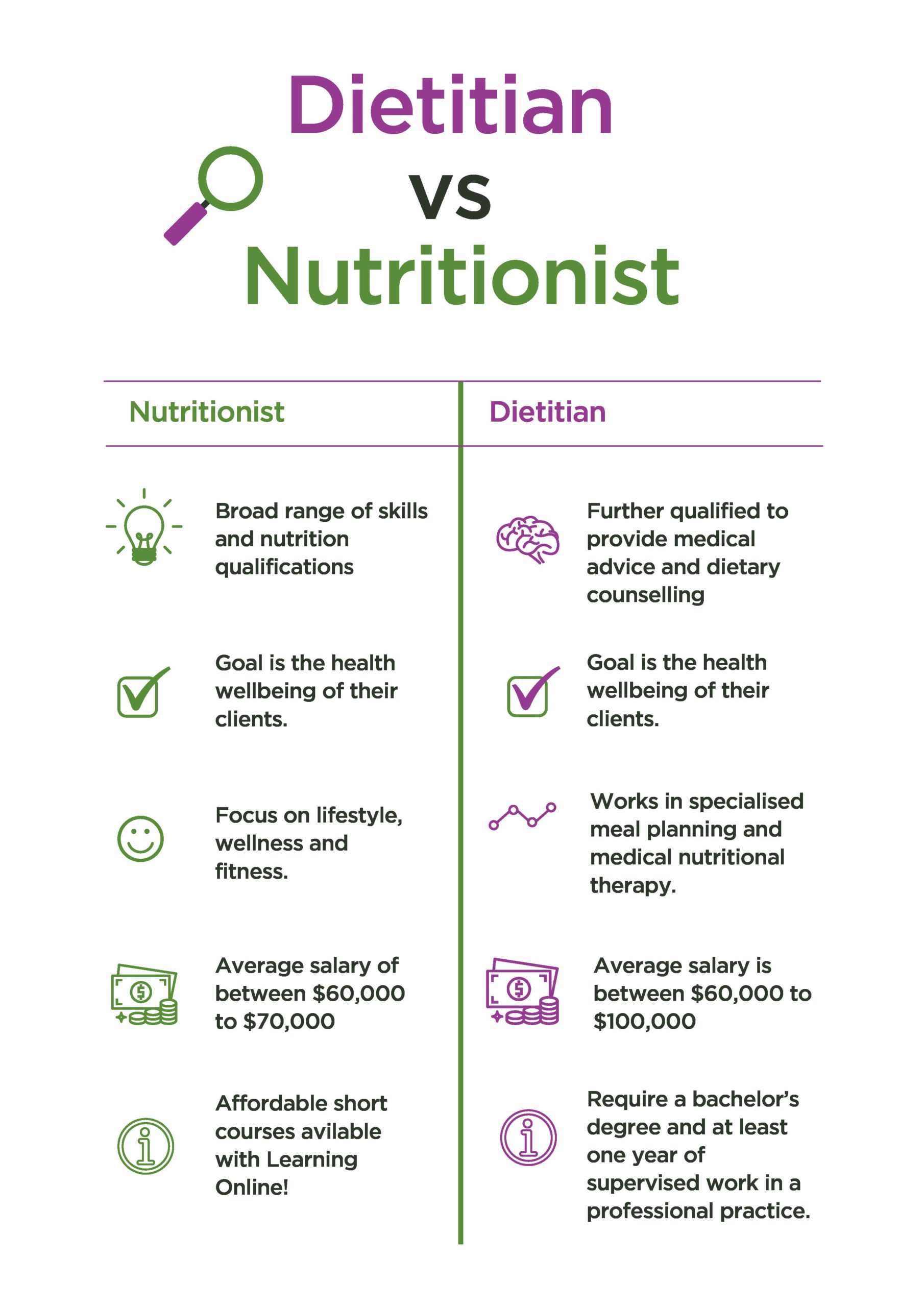All Categories
Featured
Table of Contents
The kinds of Nutritional experts are: and. The former are those individuals that make use of the clinical technique to study nutrients, both as specific substances and as they interact in food and nutrition while the last are specialists who help in detecting the dietary issues of neighborhoods and in finding solutions to those issues.
: They work with health cares and worldwide wellness organizations.: They are responsible for large-scale food preparation and service.: They are professionals in nourishment and aging. They are Board accredited in Gerontological Nutrition with the American Dietetic Association.: They are primarily involved with nutritional relevant study in the scientific element of nutrition in condition states, public element on primary, additional and sometimes tertiary health and wellness avoidance and foodservice aspect in problems involving the food planned for clients.
How Do I Find A Senior Diet Optimization Service?
: These function as resource people for the media. Dietitians' experience in nutrition is frequently taped for TV, radio, and papers-- either as a specialist visitor point of view, normal writer or guest, or for source, dining establishment, or dish growth and critique.: These work under private practice. As clarified over, all dietitians are nutritionists but not all nutritionists have the credentials and certifications to be called dietitians.
This implies specifically the very same point as Registered Dietitian (RD), a term that has been in use for a lengthy time. While accreditation to become an RD or RDN is regulated by the Academy of Nutrition and Dietetics a nationwide company licensure is managed by individual states.

In order to give medical nutrition treatment and qualify as providers for insurer, a dietitian should be accredited by the state. According to the Bureau of Labor Statistics, the demand for dietitians and nutritionists is anticipated to enhance by 20% in between 2010 and 2020 this is a much faster development price than the average for all line of work.
What Is Full Service Certified Renal Dietitian?
There are significant differences in compensation based upon specialization, with Professional Pediatric Dietitians and Milk Nutritionists averaging about $90,000. In 2014, The Bureau of Labor Data (BLS) found that the leading 10% of dietitians and nutritional experts make even more than $79,000, and the bottom 10% less than $36,000 - Clinical Dietitian. A mean per hour wage of $27.62 was determined for both markets, with the leading 10% earning over $38.00 per hour, and the bottom 10% earning below $17.00 per hour

However, there is a variety of jobs readily available in various settings for those that desire to deal with the general public, as well as for those who prefer more research-focused work. Numerous obtain into one of these fields in order to aid people live much healthier lives which can be profoundly gratifying.
With existing stats that one-third of the U.S. population is obese, in addition to a multitude of senior united state locals, dietitians and nutritional experts are likely to have a much more substantial duty in the future. My Plan ranks dietitians and nutritionists at # 53 in their happiness index of leading 300 jobs with the greatest work satisfaction scores.
Along with attending a certified program, a lot of states require dietitians to be certified or to have professional qualification, or both. In contrast, just regarding fifty percent of states require such qualifications for nutritionists. However, numerous professional duties for nutritionists phone call for at least a bachelor's degree, and the very same qualification is offered for nutritionists and dietitians alike.
How Much Does Renal Dietitian Service Cost?
Your core courses might include: Food science Chemistry Wellness care plan Scientific nourishment Biostatistics Microbiology Food service management You'll additionally require to complete a dietetic internship.

Whether composed in law or not, dietitians and nutritional experts several times require a comparable education. Typical bachelor's degrees for nutritional experts consist of nutrition scientific research or an associated self-control, such as dietetics, kinesiology, food system management, or biochemistry and biology.
The variety of hours you'll need may depend on needs in the state where you'll work. Whether you prepare to make a credential or not, it's a good idea to finish at the very least one internship to acquire valuable experience before seeking a permanent function. Licensing and certification demands for nutritionists and dietitians differ from one state to another.
How Much Does It Cost To Have A Functional Dietitian?
A professional qualification demonstrates your competence and knowledge in your field. These are not certification programs. A certification shows that you have taken a training program to discover an ability. Certification reveals your proficiency extends past your education and learning which you have actually passed a qualifying test. Below are the leading accreditations for dietitians and nutritionists.
The titles are basically the exact same. There's no expert difference in between them, and you're complimentary to choose which one you intend to utilize based on personal preference. To take the qualification examination, you should: Gain a bachelor's degree that's approved by the ACEND Total a dietetics internship After Jan. 1, 2024, you'll require to earn a master's level to receive the qualification.
How Much Does It Cost To Hire A Women’s Health Nutritionist?
Bureau of Labor Stats puts dietitians and nutritional experts in the very same category and says they gain a typical yearly wage of $69,680. There is a range in incomes, with the lower 10% around $44,910 and the leading 10% around $98,830, according to the BLS. Nutritional expert and dietitian duties are anticipated to grow 6.6% via 2032, according to the BLS.
This doesn't mean that career is premium to the various other, as they both have various features and certifications that may sometimes overlap. If you wish to find out more about what makes these occupations distinct, maintain reading. Diet professionals are professionals that help improve the lifestyle with healthy and balanced food selections.
What Do Dietitian For Weight Loss Services Include?
Nutritionist suggestions regarding nutrition's influence on health and wellness. They assist individuals embrace much healthier ways of consuming and develop personalized strategies based upon objectives. Their solutions include dietary assessment and counselling, meal preparation and creating healthy consuming programs. Although some have formal education and credentials, others may have extra fundamental accreditations. The field is much less regulated than diet professionals; therefore, nutritionists' levels of competence and credentials can differ.
There are several distinctions between diet professionals and nutritionists. As their occupations breakthrough, many dieticians pursue innovative degrees, like a Master's or Doctorate, to be experts in certain areas of nourishment.
Latest Posts
What Are The Best Christian Bale Body Companies?
Paediatric Dietician – Ascot
How Do I Choose A 12 Week Transformation Service?